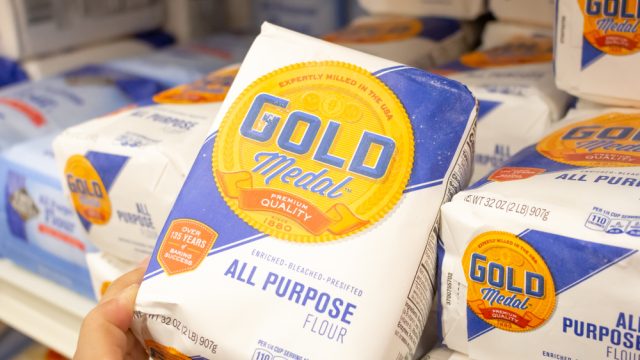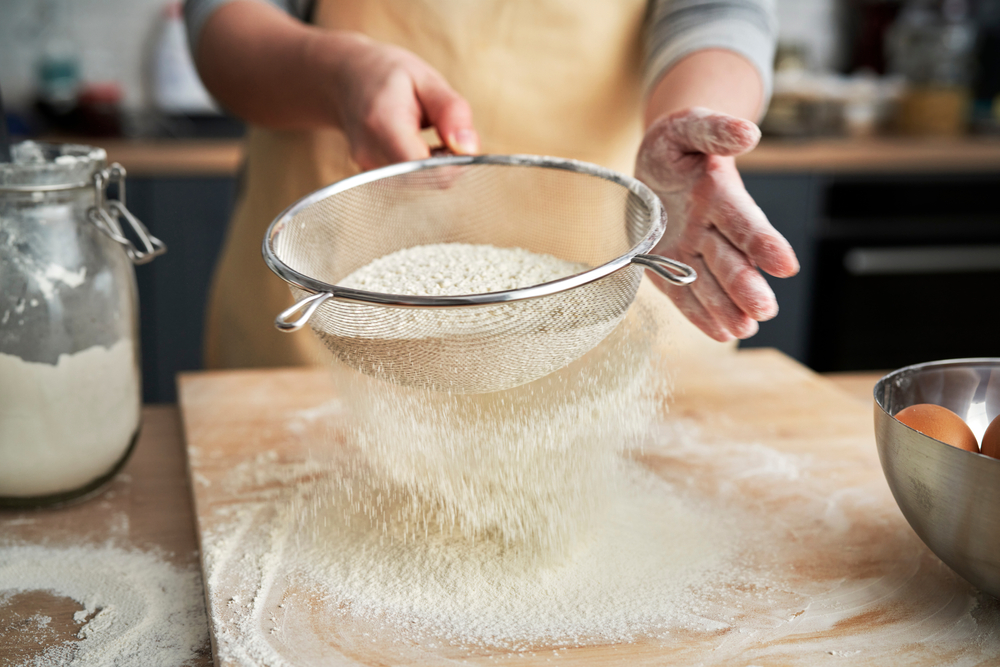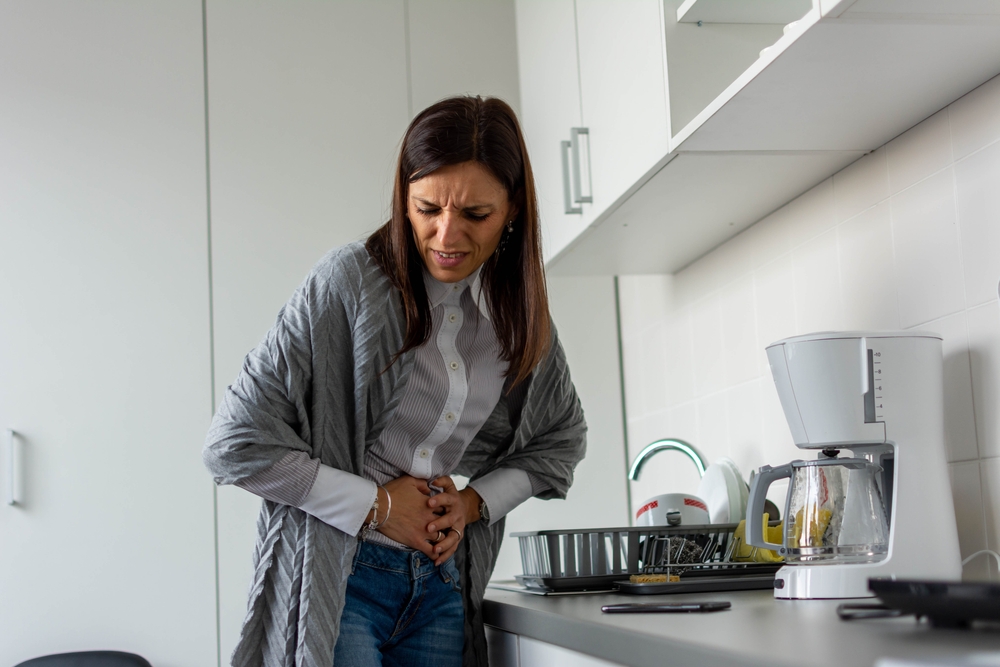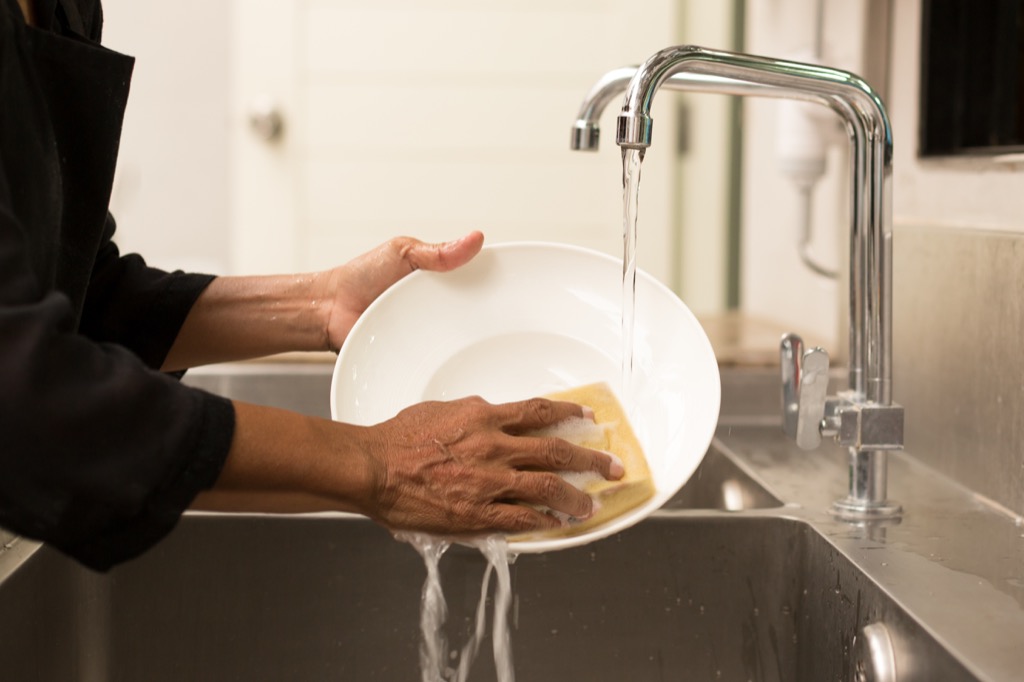Gold Medal Flour Recalled Over Potential Salmonella, FDA Warns
Affected bags of the kitchen staple could pose a serious health risk to consumers.

No matter what level of home cook you may be, it's practically impossible to pull off certain dishes without flour. The kitchen staple is the baseline ingredient for most baked goods such as cookies and cakes, but it also makes its way into homemade pasta, gravies and sauces, and crispy coatings on your favorite fried foods. It's even handy for home art projects or making homemade playdough. But before you go to prepare your next meal, you might want to double-check what's in your pantry after the U.S. Food & Drug Administration (FDA) announced that Gold Medal Flour has been recalled. Read on for more information and how to spot the affected items.
READ THIS NEXT: 800,000 Bottles of Fabric Softener Recalled Due to Cancer-Causing Chemical.
General Mills just recalled Gold Medal Flour bags sold nationwide.

On April 28, the FDA announced that General Mills had voluntarily recalled its Gold Medal Unbleached and Bleached All Purpose Flour. The move affects 5-pound and 10-pound bags of unbleached flour with the UPCs 000-16000-19610 and 000-16000-19580, respectively. It also includes 2-pound bags of bleached flour with the UPC 000-16000-10710 and 5-pound bags of bleached flour with the UPC 000-16000-10610.
All recalled items are stamped with a "better if used by" date of March 27, 2024, or March 28, 2024. The company clarified that no other units of Gold Medal Flour are affected by the move.
The company pulled the product due to potential Salmonella contamination.

According to the recall notice, the company pulled the product from shelves after sampling of a 5-pound bag came back positive for Salmonella Infantis bacteria. The potentially dangerous microorganism can cause serious illness in some people, including symptoms such as nausea, diarrhea, fever, and abdominal pains, per the U.S. Centers for Disease Control and Prevention (CDC).
The agency says that signs of infection first start within six hours to six days after consuming contaminated products. But while symptoms usually last four to seven days and clear up on their own, some people become so ill they require hospitalization. Children who are younger than five and adults over 65 are especially at risk, as well as people who are immunocompromised.
RELATED: For more up-to-date information, sign up for our daily newsletter.
The CDC recently issued an alert about a Salmonella outbreak linked to flour.

The Gold Medal recall comes roughly a month after the CDC announced it believed flour was the source of a Salmonella outbreak that had sickened 12 people across 11 states as of March 30. Three of the reported cases resulted in hospitalization of the patient.
At the time of its announcement, the agency said it was still trying to identify which brands or products could be responsible for the illnesses. But state and local public health officials investigating the outbreak said that six out of seven people interviewed reported eating "raw dough or batter" before they became ill and that flour was the only common ingredient in each case.
Here's what you should do if you have the recalled Gold Medal Flour in your kitchen.

Due to the potential for contamination, customers who have recently purchased Gold Medal Flour are advised to check their pantries and throw away any of the affected items. Customers can also contact General Mills for a refund by calling a hotline posted on the recall notice. Anyone who believes they may have become ill after consuming the product should seek medical attention immediately.
The FDA and CDC also warn that consuming raw products made with uncooked flour is unsafe. The agencies note that "Salmonella Infantis is killed by heat through baking, frying, sautéing, or boiling products made with flour." In addition, they advise that all surfaces, hands, and utensils should be properly cleaned after they come in contact with flour, batter, or raw dough.
- Source: https://www.fda.gov/safety/recalls-market-withdrawals-safety-alerts/general-mills-recalls-four-gold-medal-unbleached-and-bleached-all-purpose-flour-varieties-dated
- Source: https://www.cdc.gov/salmonella/index.html
- Source: https://www.cdc.gov/salmonella/infantis-03-23/index.html?ftag=YHF4eb9d17
- Source: https://www.fda.gov/consumers/consumer-updates/raw-doughs-raw-deal-and-could-make-you-sick





















